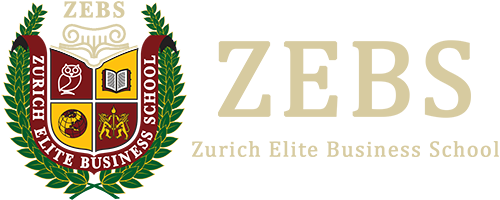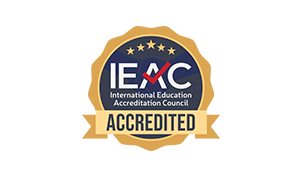Master of Business Administration – Project & Change Management
Business Courses
The Strategy course is a state-of-the-art workshop that gives managers, consultants and coaches the knowledge to develop an effective strategy for their business or clients’ business. Pressure for short term financial results and shareholders value does not release executives from the responsibility for the long term success. If they want to reach excellence in their business they have to be capable of articulating a strategy that differentiates from the competition.
This course will hone your intuition and equip you with tools to turn strategic ideas into actions. You will be provided with state-of-the-art concepts that have been validated in the field as well as the latest developments in strategic thinking and you will learn through case studies a scheme of how to use them in several business situations. You will sharpen your competitive skills and change the way you will strategically manage your business.
At this Advanced Leadership course an exciting leadership and teambuilding event at a sports ground takes place and it provides the students with a basic understanding of the leadership challenges of business. The students split up into several teams and the local sports centre team explain the rules. The team leaders get briefed in the theoretical elements of the team-leading and team-building processes which have to be realized.
Before the match begins each team leader “recruits” its team, allocates certain roles and positions to their members and sets the strategy. After this the game begins. Team self reflection and feedback processes under ´real-life` difficult circumstances such as time and performance pressure take place. Strengths and weaknesses get identified which lead to adaptations in the roles, positions and strategies of the teams. This gives a fresh perspective on the game and the adjustment of the teams’ strategies lead to an optimized way of confronting the opponent.
Before rounding off the evening with delicious burgers and drinks, the students and the staff reflects on the match according to their initial goals and strategies. The strategy amendments and their implementation get discussed as well as the “leadership-lessons” learned.
International marketing is a deepening approach within the broad field of marketing. Nowadays, most companies have a more or less international orientation. The corresponding activities are including export / import, licensing, joint ventures, subsidiaries. The degree of internationalisation is different, but the general tendency is towards more and more global companies. Under these circumstances, marketing is a more challenging task. The objectives of the course thus are:
- to make students familiar with internationalisation and globalisation effects and their repercussions on marketing
- to analyse international market environments and their risks . to discuss specific international objectives and strategies
- to provide students with knowledge on internationally adapted marketing instruments
- to discuss international marketing process tools, e.g. international marketing research
To achieve a deeper understanding, various real life case studies will be studied to highlight specific issues of international marketing.
There is increasing recognition of the significance of the Human Resources of an Organisation being it's KEY resource. The debate surrounds the issue of whether this comment remains at the level of rhetoric and what organisations can do to best utilise this critical resource. The challenge for HR professionals is to deliver Performance improvement within a context which is often sceptical about the contribution of HR to overall strategy.
The aim of this course is to confront the issues associated with Human Resource Management's contribution to achieving organisational objectives. Specific reference will be made to:
- The meaning and understanding of Strategic HR Management
- Management development and it's linkage to Organisational Development
- Performance management with particular reference to reward management
- International HR issues
The module leader has written a number of case studies based on his consultancy experience in a variety of industrial sectors and these will be used to support the learning process.
Manager do not only need to think entrepreneurially but also have to understand the financial relations within the company in order to achieve long-term success for the company.
This course will help you to improve rapidly your finance skills and develop a good understanding of main financial concepts.
The explanation of P&L, Balance Sheet, Cash Flow and Key Performance Ratios and the connection to strategy, business operations and corporate results will help you sharpen your finance know-how and equip you with the skills to manage your business successfully.
This course is particularly targeted at students of business administration, general management, MBA and/or corporate representatives with an interest in a pragmatic introduction to the realm of project & change management.
Program style: This is a highly practical and participative course. While some theory is being introduced, the focus is on pragmatic application – on how to manage projects/change more effectively. To ensure relevance and support the transfer of learning, each attendee is required to bring some current project and change challenges which are used as the basis of group activities and exercises throughout the program. The program is structured around a variety of coaching and action learning experiences.
Objectives:
The participants…
- are familiar with the basic project & change management concepts & techniques,
- can apply basic approaches and tools to daily PM/CM challenges,
- can quickly elaborate first recommendations and pragmatic steps for their companies, design own projects and – if needed – recommend necessary structures,
- are familiar with “good & bad practices” and have learned from others’ experience,
- know their next steps and training options.
Project Management:
Along a standard PM certification structure (PMI), the course is meant to provide a high-level overview of project management dimensions. As such it does not emphasize nor replace the theoretical depth of project management certifications, but intends to quickly raise the level of knowhow and day-to-day applicability of PM techniques. The course strictly follows the 80:20 rule with a clear focus on how to instantly improve standard project management skills in a corporate environment. Topics include:
- Introduction: Critical success factors, typical pitfalls & reasons for failure
- Project phases & project management areas, hereof:
- Scope management & change request handling
- Project planning & time management
- Cost & budget management, KPI-chains
- Stakeholder management & project communication
- Risk & issue management
- Overview: Program management
- For those who need more: Typical project management certifications (e.g. PMI)
- Case study & team contest
Change Management:
The course is structured as a high-level introduction to the broad topic of change management. The students will be presented a series of change management models, discuss their variations and understand how to apply them to daily corporate and project challenges. The course lays the foundation for a more in-depth change management workshop around team, organizational und culture change. In this brief introduction the following topics will be covered:
- Change management introduction & overview: What is organizational change?
- High-level systems theory: What to change?!
- Different models of change
- The psychology of change
- Typical change approach: Create sense of urgency, vision, team/ champions, handle resistance/ conflicts, etc.
- Optional: Depending on the time available 1-2 topics from: Levels of change engagement interventions & key change pre-requisites
- Individual: Understand individual impact & personality types (Bolton & Bolton, MBTI, etc.)
- Team: Diagnosing maturity and developing teams (forming – storming – norming – performing)
- Organizations: Diagnosing & changing corporate culture (OCAI model Kameron & Quinn)
- Leadership: Understanding leadership impact & necessary management skills (management skills assessment instrument/ MSAI model Kameron & Quinn)
- Case study & team contest (design a change approach)
Methods:
The course uses various kinds of didactic learning methods – impulse presentations, case work (incl. tools), individual and group work, critical discussions, role plays, ex-ante reading – and requires the students to critically participate and re-question their own management skills.
Overview and Aims The aim of this programme is to enable participants to develop specific skills that are pivotal to successful management and effective leadership. This programme encourages participants critical thinking and problem solving skills, develops their team working and interpersonal skills. By enhancing these skills participants will develop their levels of emotional intelligence and hence their credibility within the organisation. The programme has a direct application to the work environment and participants are encouraged to draw upon their current (and past) work experience in order to contextualise their learning. As a result learners are encouraged to become more aware of themselves, their diverse personality traits, attributes and beliefs, and how these shape their own approach to work and that of colleagues. This strong sense of self awareness and awareness of others underpins the successful practice of management and effective leadership. Programme Content The programme will cover the following areas:
- Enhancing working effectiveness: to include establishing organisational and personal values and goal setting, strategic stakeholders’ analysis, personal resilience and managing stress.
- Effective communication: active listening, identification of needs, communication styles, presenting with impact.
- Negotiation skills: conflict management, understanding differences, the cultural dimension.
- Decision making: analysis and problem solving, creative thinking, project management and tracking, risk management.
Emotional Intelligence: positive mental state, understanding self, building relationships.



